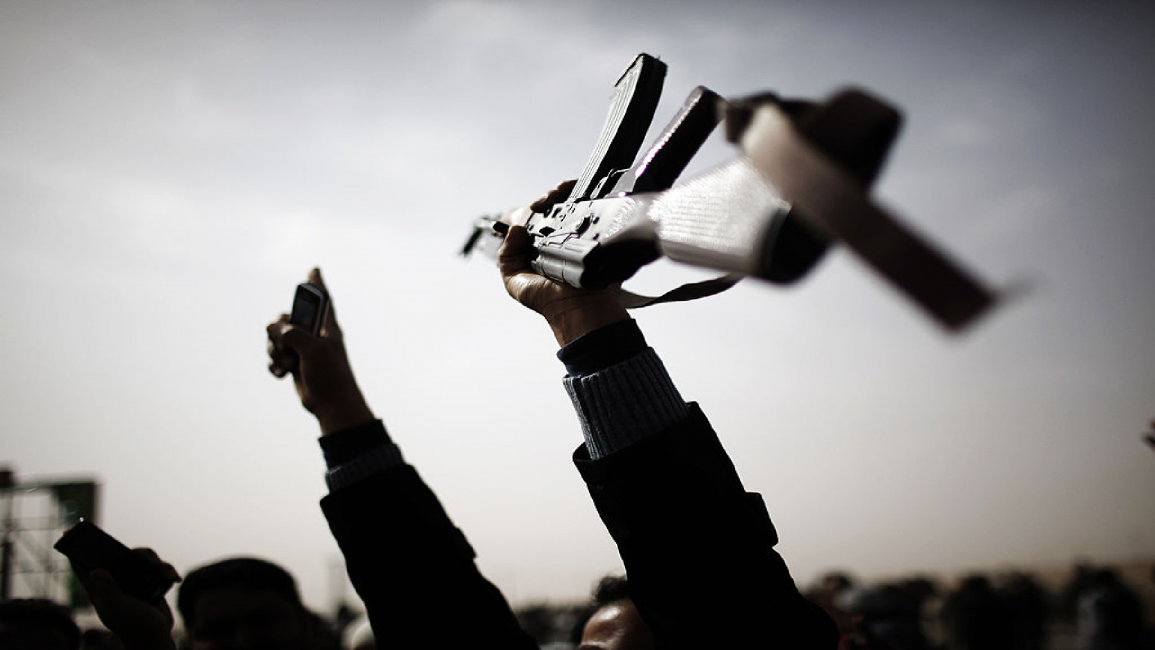Libya military commission meets in Tunisia to discuss mercenary departure
The Libyan Joint Military Commission met in Tunisia on Wednesday to discuss setting dates for the withdrawal of foreign mercenaries from Libya.
The meetings - bringing together the so-called 5+5 committee made up of rival camps in the Libyan conflict - are expected to start behind closed doors, and a timetable for the departure of mercenaries could be announced by the end of discussions, a source told The New Arab’s sister site, Al-Araby Al-Jadeed.
Mahdi Thabet, a political analyst specialising in Libyan affairs, told Al-Araby Al-Jadeed that Tunisia was chosen to host the meetings to avoid the internal pressures inside Libya.
"The issue is very sensitive, and there are many foreign parties interfering in the matter and are monitoring the situation," he said.
The UN estimates that 20,000 mercenaries and foreign fighters are deployed in Libya, including from the Russian private security firm Wagner, as well as from Chad, Sudan, and Syria.
Turkey also maintains a military presence in the country.
"The representatives of foreign countries directly concerned with these talks [have] come to facilitate dialogue and to play an observer role, and push for a solution regarding the mercenaries in Libya. These parties will be partners in decision-making in one way or another," said Thabet.
He clarified that once an agreement is reached, the foreign fighters would begin to leave the country in stages.
A number of officials and Libyan affairs experts have previously warned that the exit of foreign forces from Libya would need to be coordinated with neighbouring states and international bodies to avoid conflict. They have also warned of possible terrorist attacks that may threaten neighbouring countries.
Earlier this month, forces of Libyan strongman Khalifa Haftar said 300 foreign mercenaries fighting on their side would leave the country at the request of France. The nationality of the fighters was not specified.
Libya has been struggling to move past the violence that has wracked the oil-rich nation since a 2011 uprising toppled and killed dictator Muammar Gaddafi.
An UN-brokered ceasefire in October last year was reached to end fighting between rival eastern and western camps but Libya remains divided.
Libya is scheduled to hold a presidential election for the first time next month, which many are concerned about amid the instability.
Seif al-Islam Gaddafi, the late dictator's son, Haftar, and current interim Prime Minister Abdulhamid Dbeibah are some of the candidates running for the post.
Paris will host an international conference in December aimed at ensuring Libya sticks to plans to hold the election.


![President Pezeshkian has denounced Israel's attacks on Lebanon [Getty]](/sites/default/files/styles/image_684x385/public/2173482924.jpeg?h=a5f2f23a&itok=q3evVtko)



 Follow the Middle East's top stories in English at The New Arab on Google News
Follow the Middle East's top stories in English at The New Arab on Google News


